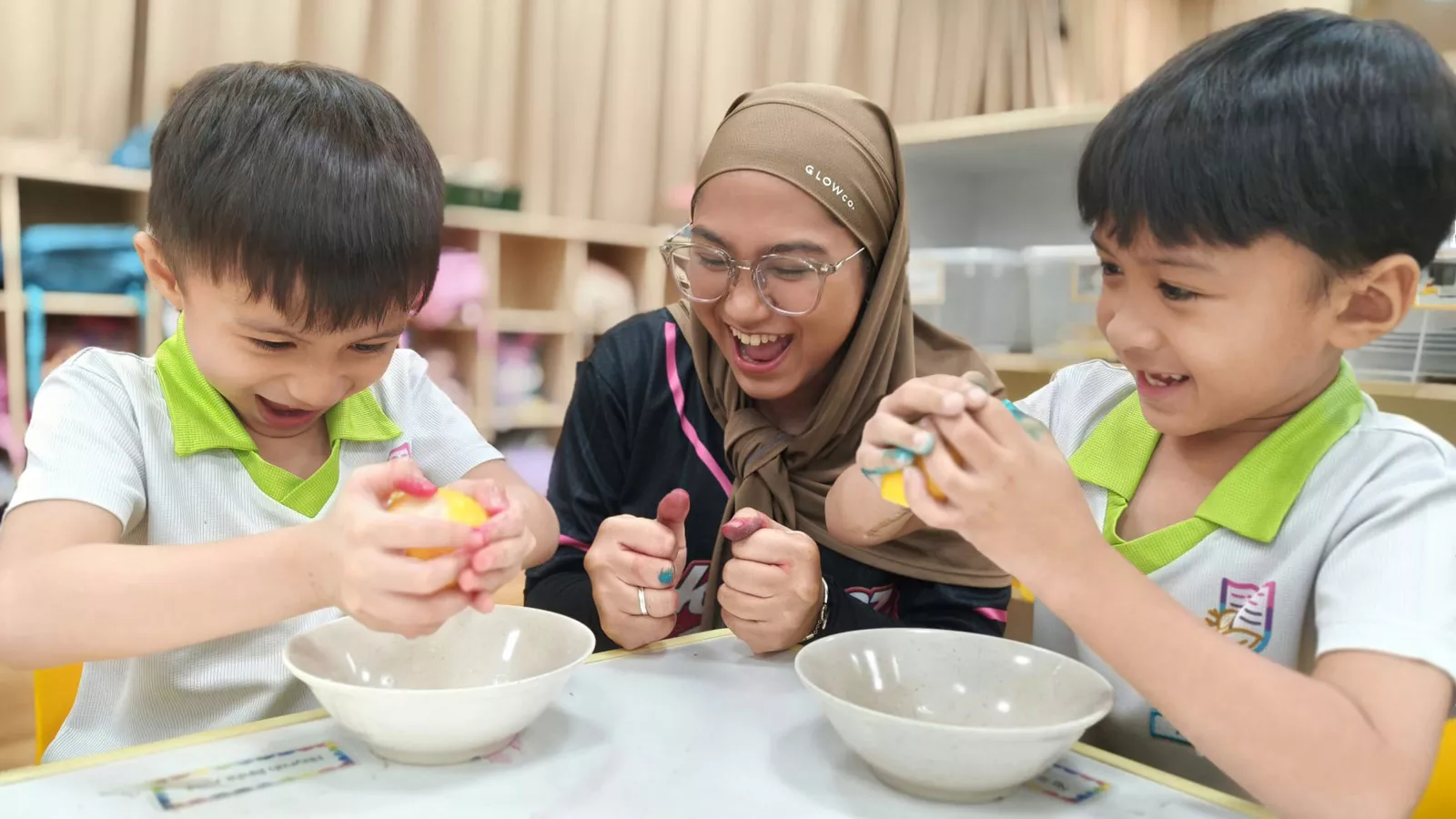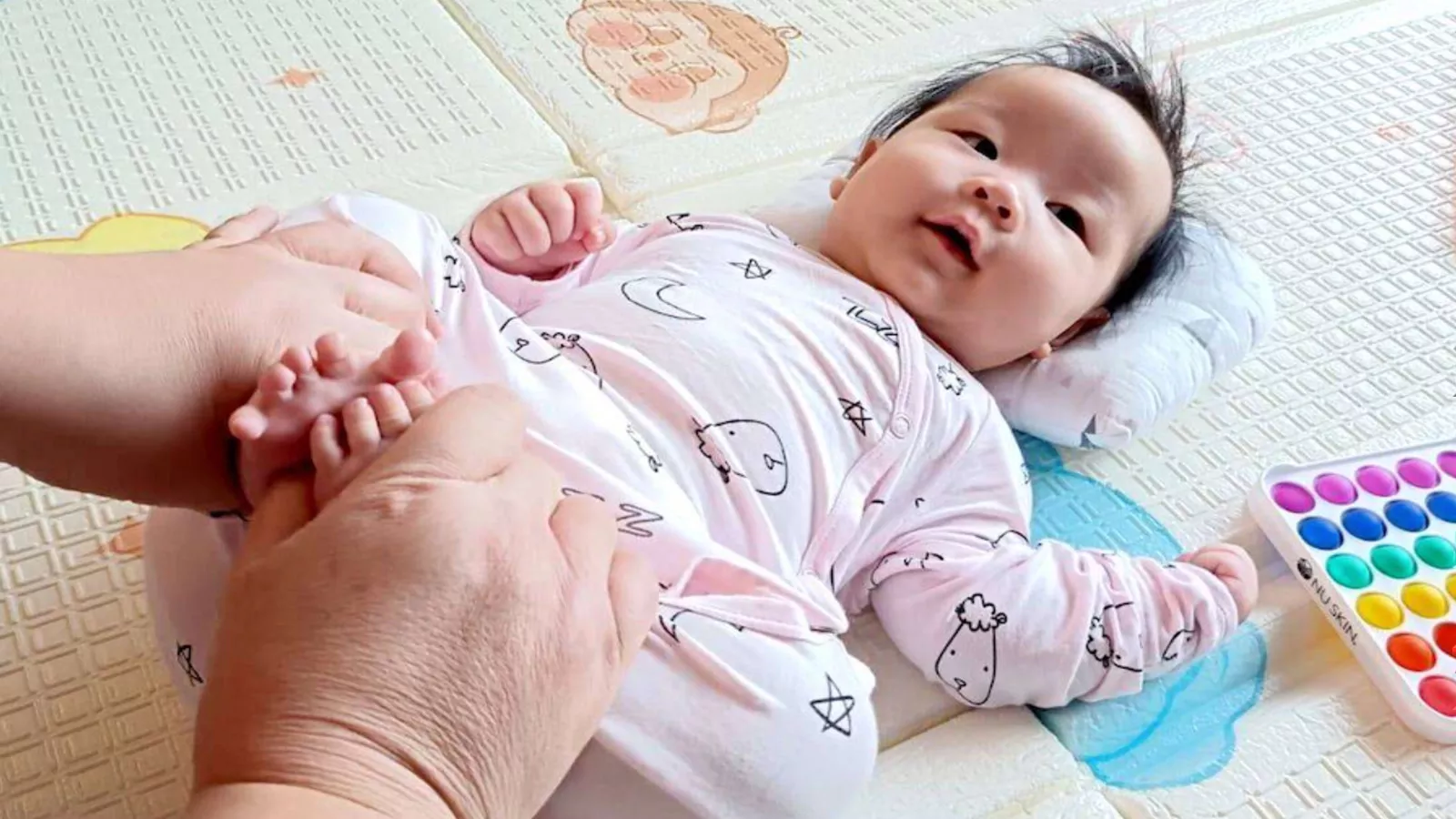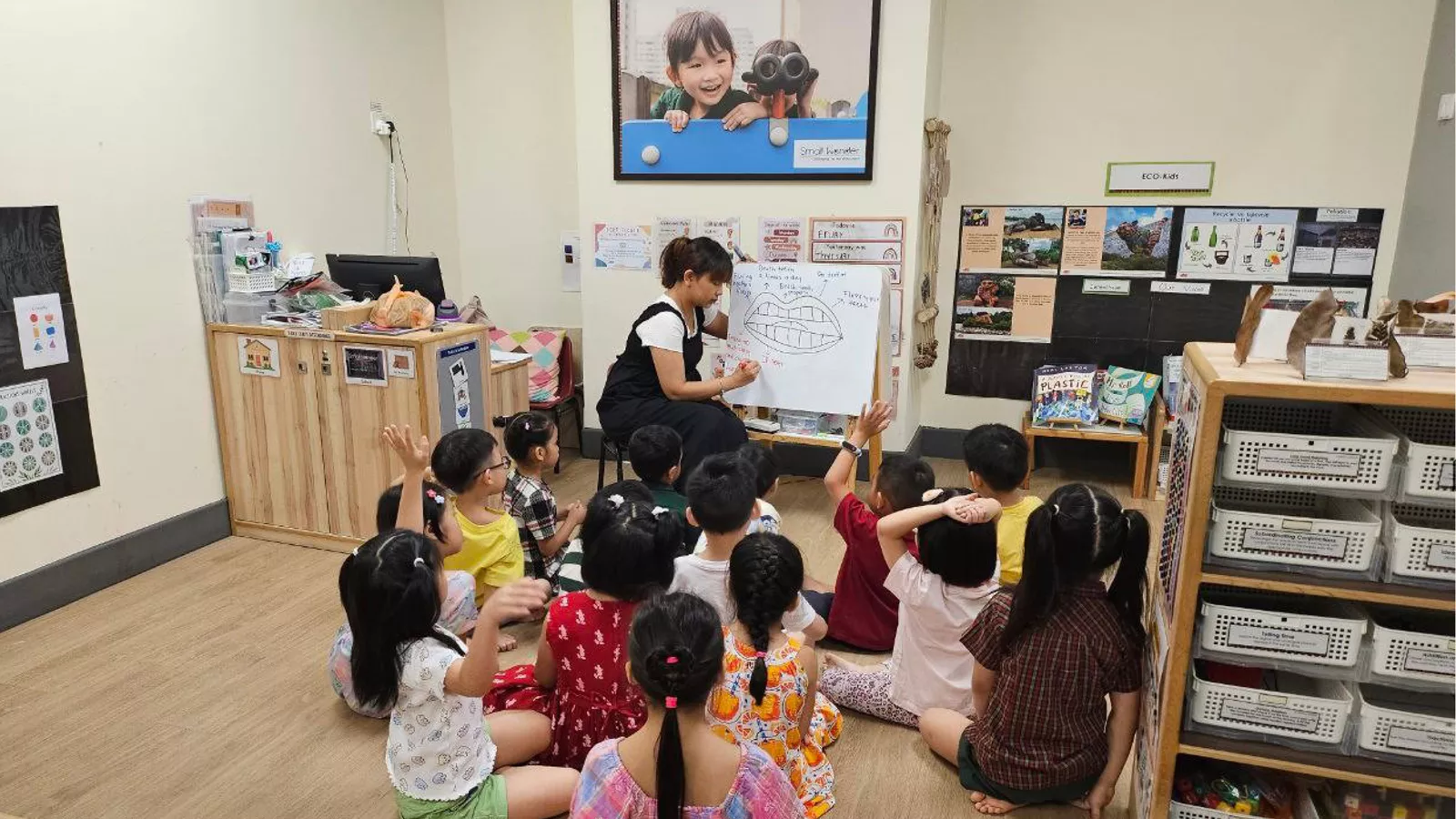ABOUT OUR EXPERT

Ms Toh is an ECDA Fellow and Deputy Head of Preschools at Star Learners Group Ltd. Her expertise spans across curriculum development, school leadership, teacher training and parenting support, with a strong focus on child development, behaviour and emotional well-being.
Studies have raised concerns about the impact of screen time on child development, especially for infants and toddlers.
Excessive screen time has been linked to physical health risks from sedentary behaviour, poor nutrition and disruptive sleep patterns. It also reduces opportunities for face-to-face interactions, which are crucial in the early years for developing the ability to communicate and regulate emotions. Research further shows that too much screen time is associated with poorer language skills and shorter attention spans.
In response, the Ministry of Health (MOH) revised its screen time guidelines for children in January 2025. These recommendations are part of a new national strategy, Grow Well SG, aimed at promoting healthier lifestyles among children and adolescents.
 MOH’s recommended guidance on screen use in young children. The updated advisory is also available on HealthHub.
MOH’s recommended guidance on screen use in young children. The updated advisory is also available on HealthHub.
ECDA Fellow Ms Stacey Toh welcomes this move to limit screen use at home. “Excessive screen time interferes with the developmental experiences of young children, affecting their physical, cognitive, social-emotional and mental well-being,” she says. “By building healthy screen habits in children, parents can also foster stronger parent-child bonds and connections.”
USE ‘SCREEN’ STRATEGIES
For parents finding it challenging to manage their children’s screen time, Ms Toh shares tips built around the acronym ‘SCREEN’:
 Model healthy screen habits and strengthen parent-child bonds by putting away your own device at mealtimes.
Model healthy screen habits and strengthen parent-child bonds by putting away your own device at mealtimes.
- Set expectations. Lay down clear and simple rules, such as “no phones during meals or in the bedroom”. Let your child know the consequences if these rules are not followed. When children understand what is expected of them, they are less likely to resist or push boundaries.
- Consistency. Be consistent in enforcing rules. This helps children understand boundaries and learn to regulate their behaviour. Apply the rules firmly and avoid making any exceptions.
- Role-modelling. Children learn by observing people around them. Be a positive role model and adjust your own screen habits. Put away your phone during mealtimes, and give your child your full attention when they speak.
- Establish routines. Create daily routines that do not involve screens. For instance, fill playtime with hands-on, creative and social activities. Stick to a screen-free bedtime routine (e.g. shower, story time, lights out), even during weekends and holidays. Children thrive on predictability and structure.
- Engage. Build meaningful connections with your child through conversations. Ask open-ended questions such as “What did you do in preschool today?”. These interactions, as opposed to passive screen time, help strengthen the parent-child relationship.
- Nurture and encourage. Offer positive reinforcement. Praise your child when they choose screen-free activities or put away their device without being told.
ADAPT YOUR APPROACH AS YOUR CHILD GROWS
“Parents should adjust the ‘SCREEN’ strategies based on their child’s developmental stage,” adds Ms Toh. “Infants, toddlers and preschoolers have different needs and levels of understanding.”

TAKE SMALL STEPS FOR BIG RESULTS
Restricting children’s use of digital devices can be challenging, given their ubiquity and convenience. “Shifting away from screens does not happen overnight,” notes Ms Toh. “It’s about taking progressive steps.”
- Start slow. If your child currently gets two hours of screen time daily, reduce it by 15 to 30 minutes each week until it’s within recommended limits.
- Replace screen time with engaging activities. Swap a cartoon before dinner with playdough, sticker books or simple puzzles. Children need to be engaged, otherwise they will resort to screens to ease boredom.
- Set a consistent routine. Make screen use intentional and scheduled (e.g. “You can watch one episode of your show after playtime, then we turn the TV off”). Use a visual timer so that your child can see how much screen time is left. Children who know when screen time is allowed are less likely to ask for it throughout the day.
- Be patient. Some days are tougher than others. If your child watches a little extra TV occasionally, don’t fret. Forgive yourself and acknowledge the progress made rather than worrying about small setbacks. Tell your child, “We had a long day today, but tomorrow we will try again with less TV time.”








